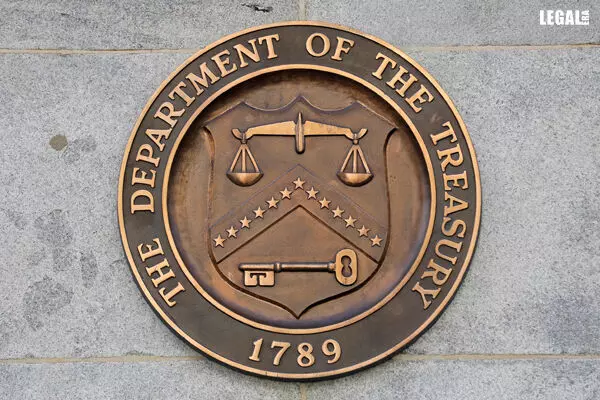- Home
- News
- Articles+
- Aerospace
- Artificial Intelligence
- Agriculture
- Alternate Dispute Resolution
- Arbitration & Mediation
- Banking and Finance
- Bankruptcy
- Book Review
- Bribery & Corruption
- Commercial Litigation
- Competition Law
- Conference Reports
- Consumer Products
- Contract
- Corporate Governance
- Corporate Law
- Covid-19
- Cryptocurrency
- Cybersecurity
- Data Protection
- Defence
- Digital Economy
- E-commerce
- Employment Law
- Energy and Natural Resources
- Entertainment and Sports Law
- Environmental Law
- Environmental, Social, and Governance
- Foreign Direct Investment
- Food and Beverage
- Gaming
- Health Care
- IBC Diaries
- In Focus
- Inclusion & Diversity
- Insurance Law
- Intellectual Property
- International Law
- IP & Tech Era
- Know the Law
- Labour Laws
- Law & Policy and Regulation
- Litigation
- Litigation Funding
- Manufacturing
- Mergers & Acquisitions
- NFTs
- Privacy
- Private Equity
- Project Finance
- Real Estate
- Risk and Compliance
- Student Corner
- Take On Board
- Tax
- Technology Media and Telecom
- Tributes
- Viewpoint
- Zoom In
- Law Firms
- In-House
- Rankings
- E-Magazine
- Legal Era TV
- Events
- Middle East
- Africa
- News
- Articles
- Aerospace
- Artificial Intelligence
- Agriculture
- Alternate Dispute Resolution
- Arbitration & Mediation
- Banking and Finance
- Bankruptcy
- Book Review
- Bribery & Corruption
- Commercial Litigation
- Competition Law
- Conference Reports
- Consumer Products
- Contract
- Corporate Governance
- Corporate Law
- Covid-19
- Cryptocurrency
- Cybersecurity
- Data Protection
- Defence
- Digital Economy
- E-commerce
- Employment Law
- Energy and Natural Resources
- Entertainment and Sports Law
- Environmental Law
- Environmental, Social, and Governance
- Foreign Direct Investment
- Food and Beverage
- Gaming
- Health Care
- IBC Diaries
- In Focus
- Inclusion & Diversity
- Insurance Law
- Intellectual Property
- International Law
- IP & Tech Era
- Know the Law
- Labour Laws
- Law & Policy and Regulation
- Litigation
- Litigation Funding
- Manufacturing
- Mergers & Acquisitions
- NFTs
- Privacy
- Private Equity
- Project Finance
- Real Estate
- Risk and Compliance
- Student Corner
- Take On Board
- Tax
- Technology Media and Telecom
- Tributes
- Viewpoint
- Zoom In
- Law Firms
- In-House
- Rankings
- E-Magazine
- Legal Era TV
- Events
- Middle East
- Africa
US Appeals Court Pauses Anti-Money Laundering Law Enforcement

US Appeals Court Pauses Anti-Money Laundering Law Enforcement
The Corporate Transparency Act mandated companies to disclose their beneficial owners to combat crimes
The US Court of Appeals for the Fifth Circuit in New Orleans has reinstated a nationwide injunction issued recently by a federal judge in Sherman, Texas ruling that the Corporate Transparency Act (CTA) was unconstitutional.
District Judge Amos Mazzant had ruled that Congress had no authority under its powers to regulate commerce, taxes and foreign affairs to adopt the ‘quasi-Orwellian statute’ and that it violated states' rights under the US Constitution's Tenth Amendment.
The decision pauses the enforcement of the CTA (anti-money laundering law), which mandates companies disclose their beneficial owners. It also halts the Department of the Treasury’s requirement that companies submit reports by 13 January amid ongoing legal challenges.
Most companies faced a deadline to submit their initial reports to the Treasury Department's Financial Crimes Enforcement Network (FinCEN).
However, a different panel will decide whether to uphold the judge's ruling.
The bench explained that it decided to keep enforcement of the law paused "to preserve the constitutional status quo while the merits panel considers the parties' weighty substantive arguments."
The injunction was acquired by the National Federation of Independent Business, which along with several small businesses challenged the law through lawyers at the conservative Center for Individual Rights.
Todd Gaziano, the President of the Center for Individual Rights stated, "We have established that the CTA is likely unconstitutional. This intrusive form of government surveillance should be halted until the law's fate is resolved.”
On the contrary, FinCEN’s supporters remarked that it was designed to address the country's growing popularity as a venue for criminals to launder illicit funds by setting up entities like limited liability companies under state laws without disclosing their involvement.
Under the law, enacted in 2021, corporations and LLCs were required to report information concerning their beneficial owners to FinCEN. The unit collects and analyzes information about financial transactions to combat money laundering and other crimes.



